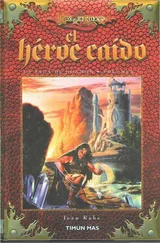John Steinbeck - Cannery Row
Здесь есть возможность читать онлайн «John Steinbeck - Cannery Row» весь текст электронной книги совершенно бесплатно (целиком полную версию без сокращений). В некоторых случаях можно слушать аудио, скачать через торрент в формате fb2 и присутствует краткое содержание. Жанр: Современная проза, на английском языке. Описание произведения, (предисловие) а так же отзывы посетителей доступны на портале библиотеки ЛибКат.
- Название:Cannery Row
- Автор:
- Жанр:
- Год:неизвестен
- ISBN:нет данных
- Рейтинг книги:3 / 5. Голосов: 1
-
Избранное:Добавить в избранное
- Отзывы:
-
Ваша оценка:
- 60
- 1
- 2
- 3
- 4
- 5
Cannery Row: краткое содержание, описание и аннотация
Предлагаем к чтению аннотацию, описание, краткое содержание или предисловие (зависит от того, что написал сам автор книги «Cannery Row»). Если вы не нашли необходимую информацию о книге — напишите в комментариях, мы постараемся отыскать её.
Cannery Row — читать онлайн бесплатно полную книгу (весь текст) целиком
Ниже представлен текст книги, разбитый по страницам. Система сохранения места последней прочитанной страницы, позволяет с удобством читать онлайн бесплатно книгу «Cannery Row», без необходимости каждый раз заново искать на чём Вы остановились. Поставьте закладку, и сможете в любой момент перейти на страницу, на которой закончили чтение.
Интервал:
Закладка:
Doc walked quietly down the stairs and into the cellar. Frankie was in the excelsior box burrowed down clear to the bottom, with the pile of excelsior on top of him. Doc could hear him whimpering there. Doc waited for a moment and then he went quietly back upstairs.
There wasn’t a thing in the world he could do.
Chapter XI
The Model T Ford truck of Lee Chong had a dignified history. In 1923 it had been a passenger car belonging to Dr. W. T. Waters. He used it for five years and sold it to an insurance man named Rattle. Mr. Rattle was not a careful man. The car he got in clean nice condition he drove like fury. Mr. Rattle drank on Saturday nights and the car suffered. The fenders were broken and bent. He was a pedal rider too and the bands had to be changed often. When Mr. Rattle embezzled a client’s money and ran away to San Jose, he was caught with a high-hair blonde and sent up within ten days.
The body of the car was so battered that its next owner cut it in two and added a little truck bed.
The next owner took off the front of the cab and the windshield. He used it to haul squids and he liked a fresh breeze to blow in his face. His name was Francis Almones and he had a sad life, for he always made just a fraction less than he needed to live. His father had left him a little money but year by year and month by month, no matter how hard Francis worked or how careful he was, his money grew less until he just dried up and blew away.
Lee Chong got the truck in payment of a grocery bill.
By this time the truck was little more than four wheels and an engine and the engine was so crotchety and sullen and senile that it required expert care and consideration. Lee Chong did not give it these things, with the result that the truck stood in the tallgrass back of the grocery most of the time with the mallows growing between its spokes. It had solid tires on its back wheels and blocks held its front wheels off the ground.
Probably any one of the boys from the Palace Flophouse could have made the truck run, for they were all competent practical mechanics, but Gay was an inspired mechanic. There is no term comparable to green thumbs to apply to such a mechanic, but there should be. For there are men who can look, listen, tap, make an adjustment, and a machine works. Indeed there are men near whom a car runs better. And such a one was Gay. His fingers on a timer or a carburetor adjustment screw were gentle and wise and sure. He could fix the delicate electric motors in the laboratory. He could have worked in the canneries all the time had he wished, for in that industry, which complains bitterly when it does not make back its total investment every year in profits, the machinery is much less important than the fiscal statement. Indeed, if you could can sardines with ledgers, the owners would have been very happy, As it was they used decrepit, struggling old horrors of machines that needed the constant attention of a man like Gay.
Mack got the boys up early. They had their coffee and immediately moved over to the truck where it lay among the weeds, Gay was in charge. He kicked the blocked-up front wheels. “Go borrow a pump and get those pumped up,” he said. Then he put a stick in the gasoline tank under the board which served as a seat. By some miracle there was a half inch of gasoline in the tank. Now Gay went over the most probable difficulties. He took out the coil boxes, scraped the points, adjusted the gap, and put them back. He opened the carburetor to see that gas came through. He pushed on the crank to see that the whole shaft wasn’t frozen and the pistons rusted in their cylinders.
Meanwhile the pump arrived and Eddie and Jones spelled each other on the tires.
Gay hummed, “Dum tiddy — dum tiddy,” as he worked. He removed the spark plugs and scraped the points and bored the carbon out. Then Gay drained a little gasoline into a can and poured some into each cylinder before he put the spark plugs back. He straightened up. “We’re going to need a couple of dry cells,” he said. “See if Lee Chong will let us have a couple.”
Math departed and returned almost immediately with a universal No which was designed by Lee Chong to cover all future requests.
Gay thought deeply. “I know where’s a couple — pretty good ones too, but I won’t go get them.”
“Where?” asked Mack.
“Down cellar at my house,” said Gay. “They run the front doorbell. If one of you fellas wants to kind of edge into my cellar without my wife seeing you, they’re on top of the side stringer on the left hand side as you go in. But for God’s sake, don’t let my wife catch you.”
A conference elected Eddie to go and he departed.
“If you get caught don’t mention me,” Gay called out after him. Meanwhile Gay tested the bands. The low-high pedal didn’t quite touch the floor so he knew there was a little band left. The brake pedal did touch the floor so there was no brake, but the reverse pedal had lots of band left. On a Model T Ford the reverse is your margin of safety. When your brake is gone, you can use reverse as a brake. And when the low gear band is worn too thin to pull up a steep hill, why you can turn around and back up it. Gay found there was plently of reverse and he knew everything was all right.
It was a good omen that Eddie came back with the dry cells without trouble. Mrs. Gay had been in the kitchen. Eddie could hear her walking about but she didn’t hear Eddie. He was very good at such things.
Gay connected the dry cells and he advanced the gas and retarded the spark lever. “Twist her tail,” he said.
He was such a wonder, Gay was — the little mechanic of God, the St. Francis of all things that turn and twist and explode, the St. Francis of coils and armatures and gears. And if at some time all the heaps of jalopies, cut-down Dusenbergs, Buicks, De Sotos and Plymouths, American Austins and Isotta Fraschinis praise God in a great chorus — it will be largely due to Gay and his brotherhood.
One twist — one little twist and the engine caught and labored and faltered and caught again. Gay advanced the spark and reduced the gas. He switched over to the magneto and the Ford of Lee Chong chuckled and jiggled and clattered happily as though it knew it was working for a man who loved and understood it.
There were two small technical legal difficulties with the truck — it had no recent license plates and it had no lights. But the boys hung a rag permanently and accidentally on the rear plate to conceal its vintage and they dabbed the front plate with good thick mud. The equipment of the expedition was slight: some long-handled frog nets and some gunny sacks. City hunters going out for sport load themselves with food and liquor, but not Mack. He presumed rightly that the country was where food came from. Two loaves of bread and what was left of Eddie’s wining jug was all the supply. The party clambered on the truck — Gay drove and Mack sat beside him; they bumped around the corner of Lee Chong’s and down through the lot, threading among the pipes. Mr. Malloy waved at them from his seat by the boiler. Gay eased across the sidewalk and down off the curb gently because the front tires showed fabric all the way around. With all their alacrity, it was afternoon when they got started.
The truck eased into Red Williams’ service station. Mack got out and gave his paper to Red. He said, “Doc was a little short of change. So if you put five gallons in and just give us a buck instead of the other five gallons, why that’s what Doc wants. He had to go south, you know. Had a big deal down there.”
Red smiled good-naturedly. “You know, Mack,” he said, “Doc got to figuring if there was some kind of loophole, and he put his finger on the same one you did. Doc’s a pretty bright fellow. So he phoned me last night.”
Читать дальшеИнтервал:
Закладка:
Похожие книги на «Cannery Row»
Представляем Вашему вниманию похожие книги на «Cannery Row» списком для выбора. Мы отобрали схожую по названию и смыслу литературу в надежде предоставить читателям больше вариантов отыскать новые, интересные, ещё непрочитанные произведения.
Обсуждение, отзывы о книге «Cannery Row» и просто собственные мнения читателей. Оставьте ваши комментарии, напишите, что Вы думаете о произведении, его смысле или главных героях. Укажите что конкретно понравилось, а что нет, и почему Вы так считаете.











